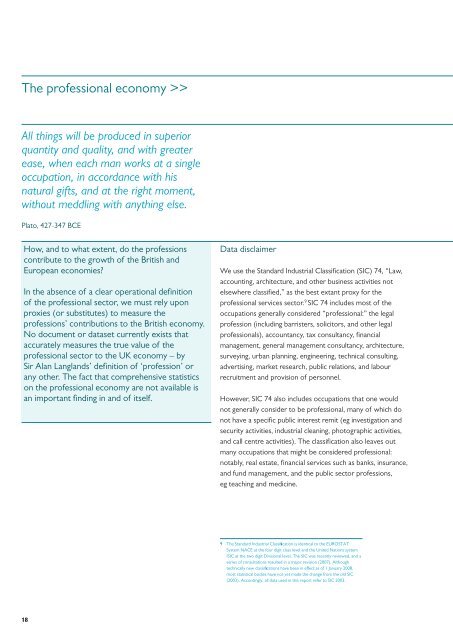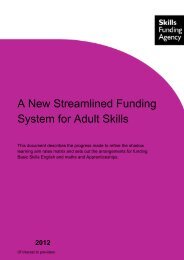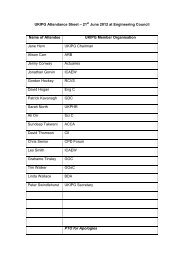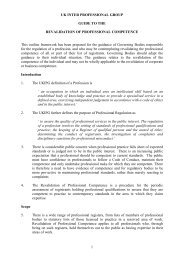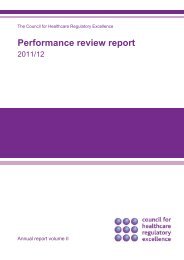BRITISH PROFESSIONS TODAY: THE STATE OF ... - Property Week
BRITISH PROFESSIONS TODAY: THE STATE OF ... - Property Week
BRITISH PROFESSIONS TODAY: THE STATE OF ... - Property Week
Create successful ePaper yourself
Turn your PDF publications into a flip-book with our unique Google optimized e-Paper software.
The professional economy >><br />
All things will be produced in superior<br />
quantity and quality, and with greater<br />
ease, when each man works at a single<br />
occupation, in accordance with his<br />
natural gifts, and at the right moment,<br />
without meddling with anything else.<br />
Plato, 427-347 BCE<br />
How, and to what extent, do the professions<br />
contribute to the growth of the British and<br />
European economies?<br />
In the absence of a clear operational definition<br />
of the professional sector, we must rely upon<br />
proxies (or substitutes) to measure the<br />
professions’ contributions to the British economy.<br />
No document or dataset currently exists that<br />
accurately measures the true value of the<br />
professional sector to the UK economy – by<br />
Sir Alan Langlands’ definition of ‘profession’ or<br />
any other. The fact that comprehensive statistics<br />
on the professional economy are not available is<br />
an important finding in and of itself.<br />
Data disclaimer<br />
We use the Standard Industrial Classification (SIC) 74, “Law,<br />
accounting, architecture, and other business activities not<br />
elsewhere classified,” as the best extant proxy for the<br />
professional services sector. 9 SIC 74 includes most of the<br />
occupations generally considered “professional:” the legal<br />
profession (including barristers, solicitors, and other legal<br />
professionals), accountancy, tax consultancy, financial<br />
management, general management consultancy, architecture,<br />
surveying, urban planning, engineering, technical consulting,<br />
advertising, market research, public relations, and labour<br />
recruitment and provision of personnel.<br />
However, SIC 74 also includes occupations that one would<br />
not generally consider to be professional, many of which do<br />
not have a specific public interest remit (eg investigation and<br />
security activities, industrial cleaning, photographic activities,<br />
and call centre activities). The classification also leaves out<br />
many occupations that might be considered professional:<br />
notably, real estate, financial services such as banks, insurance,<br />
and fund management, and the public sector professions,<br />
eg teaching and medicine.<br />
9 The Standard Industrial Classifi cation is identical to the EUROSTAT<br />
System NACE at the four digit class level and the United Nations system<br />
ISIC at the two digit Divisional level. The SIC was recently reviewed, and a<br />
series of consultations resulted in a major revision (2007). Although<br />
technically new classifi cations have been in effect as of 1 January 2008,<br />
most statistical bodies have not yet made the change from the old SIC<br />
(2003). Accordingly, all data used in this report refer to SIC 2003.<br />
18


